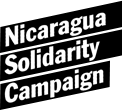Cooperatives Rise Again in Nicaragua
NSCAG News |
on: Tuesday, 18 January 2011
By the end of 2010 Nicaragua could boast 3301 cooperatives, the highest number of any Central American country. These cooperatives function mostly in agriculture, fishery and transport, and together they sustain over a million Nicaraguan citizens.
After 1990 the Nicaraguan cooperative movement was starved of funding and other resources in an effort to destroy it. Despite this the movement survived, and with the election of the Sandinista government in 2006 they again began to receive state support with the creation at the end of 2007 of INFOCOOP, which is charged with developing the Nicaraguan cooperative movement and increasing its role in the national economy.
Cooperativism is particularly symbolic in Nicaragua, where General Sandino envisioned and laid the basis for a cooperative society for his demobilized troops along the River Coco, near the northern settlement of Wiwili. After his assassination this cooperative experiment was destroyed by Somoza’s National Guard, but the basis of the cooperative movement in Nicaragua had been established. During the pre-revolutionary years cooperativism subsisted in various forms including credit unions and cooperatives of port workers.
However, it was not until the Sandinista revolution that cooperativism took off in Nicaragua. With the agrarian reform the revolutionary government created many agricultural cooperatives which grew throughout the decade of the 1980s with significant government financial and material support. After 1990 the cooperative movement came under the neoliberal cudgel, but was reinforced by new cooperatives set up by demobilized combatants of both sides, who made up in militancy for what they lacked in management skills.
Today the cooperative movement in Nicaragua aims at the creation of self-managed, self-sufficient cooperatives that can contribute to the national economy, but also help to develop a conscious citizenry with cooperative values and an awareness of their rights.





